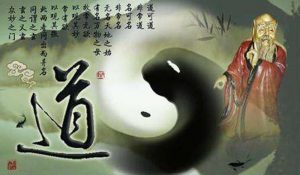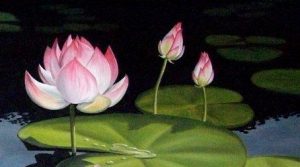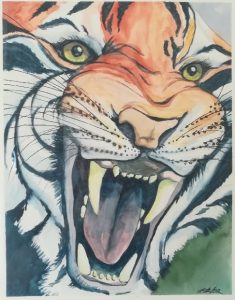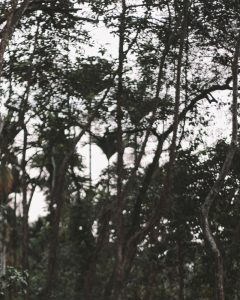Open Letter to the Community of friends of Chinese culture: Our Purpose
To Preserve Cultural Treasures: I started the SinoArchive.org website to collect hidden or lesser known treasures of Chinese civilization click here for more[expand title=”click here for more”](e.g., out-of-print books on Chinese medicine, jokes told in regional dialects), to preserve Chinese culture and make the heritage accessible to those who want to learn about it, as children growing up in a Chinese family, as close friends, or as students and scholars of a beloved culture.
To Correct Distortion: With so much information and entertainment available to the public through YouTube and other sources, there will be overemphasis on some aspects and click here for more[expand title=”click here for more”]a complete neglect of other facets of the Chinese people. I see a need to represent the Chinese cultural identity in an integrated way. By not catering to any audience, we will not distort the image to suit any predilections or confirm any preconceptions. So I hope the image will not be distorted and the voice will ring true, and perhaps many people may acquire something real and valuable from visiting this website. Even if we cannot dispel hate or counteract xenophobia, where a will exists to close the gap between disparate cultures, this project may encourage that rapprochement.
To Show a China of the Chinese: Offerings on YouTube and many websites are helpful for people who already know what they want to learn. For the uninitiated, this website presents a little microcosm — China, click here for more[expand title=”click here for more”]as experienced by Chinese people, young and old. As modest as the beginnings of this website are, it should grow as more contributions are made, especially by those hailing from different regions of China with their own dialects and customs. An additional object of creating this website is to help young people of Chinese ethnicity to find their cultural identity, and to enable other friends of Chinese culture to understand it better — by acquiring, at their leisure, a feel for China’s language and poetry, a grasp of its history and traditions, and a sense of its philosophy and approach to life and the development of arts and sciences in its cultural context.
To Answer Unasked Questions: I have always been fascinated by people from different cultures and wanted to know them better, to see where and how they lived and discover how their society evolved without intruding click here for more[expand title=”click here for more”]with unseemly curiosity. Even if I had not been held back by a sense of delicacy, I would not have known what questions to ask. Here on this website, I hope to satisfy, with respect to my culture, the curiosity I felt toward other cultures. Perhaps curiosity will be piqued by vignettes and anecdotes found here. I hope that visitors will be inspired by what they learned here to embark on further quests of discovery.
To Engage the Public:The scope and nature of this undertaking are such that success must depend greatly on the contribution from the public: visitors who donate generously and others who will supplement my work on the website and continue after my efforts have ceased. click here for more[expand title=”click here for more”]Some parts of the Chinese heritage (such as skills, crafts and healing and martial arts) are traditionally kept in the family and passed on from master to select disciples so that their practice may be controlled to maintain quality and provide the practitioners with their livelihood. Thus, masters act as parents to the disciples, and the latter often will care for the masters in their old age and look after their descendants. Besides these skills which are part of a family’s inheritance, there are arts and information which have been developed or acquired through assiduous practice and long study, and it is understandable if the author/inventor/philosopher/artist wants to benefit from his labor by invoking the protection of copyright. Because the purpose of this undertaking is to preserve the benefits of Chinese arts and sciences for posterity, we ask the public to contribute their knowledge and arts for this purpose, either by placing them in a “locked” location in our archive section, with the password key in their sole possession, or by placing them in “classrooms” in our academy, to which access may be granted on such terms as they dictate (e.g., tuition). Of course, other websites already exist, which also provide information relevant to our website and our visitors, and we can offer links, but as books go out of print, videos and websites can also eventually be taken off the web or expire. We hope with our archiving efforts to avoid such losses.
How this will work: This is an ongoing process, and visitors are invited to return to check out new content. We welcome your feedback as to what you would like to see added to the website. If you have click here for more[expand title=”click here for more”]contributions to offer, please contact us so we can agree on how your contribution will be posted, housed or archived. Finally, as you can see, resources are needed to maintain this website and to populate it with content. On or about June 15, 2021, we will open a bank account for the Society for the Cultivation and Preservation of Chinese Arts and Sciences, which will maintain SinoArchive.org. If you find the website interesting, entertaining or educational, please consider donating to this non-profit organization to help us fulfill our purpose.
Shirley Sun, Director
Here, as elsewhere, information found on other websites may be accessed by directly going to those websites using the http: reference. Sometimes, more detailed information, if desired, may be gotten by clicking on an arrow as indicated.
******************
This non-profit organization adheres to the ideals expressed in the following classical texts (freely translated):
道
 大道之行也,天下為公,選賢與能,講信修睦。故人不獨親其親,不獨子其子,使老有所終,壯有所用,幼有所長,鰥、寡、孤、獨、廢疾者皆有所養,男有分,女有歸。貨惡其棄于地也,不必藏于己;力惡其不出于身也,不必為己。是故謀閉而不興,盜竊亂賊而不作,故外戶而不閉,是謂大同。
大道之行也,天下為公,選賢與能,講信修睦。故人不獨親其親,不獨子其子,使老有所終,壯有所用,幼有所長,鰥、寡、孤、獨、廢疾者皆有所養,男有分,女有歸。貨惡其棄于地也,不必藏于己;力惡其不出于身也,不必為己。是故謀閉而不興,盜竊亂賊而不作,故外戶而不閉,是謂大同。
Where the Great Way holds sway, the whole world is open to all people. The virtuous and capable are elected to govern, and integrity and harmony prevail. For men are filial not only to their parents and parental not only to their children, so the old retire in safety, and the talent of people in their prime is never wasted. Widowed men and women, young orphans, and those without resources — the infirm, the incapacitated, and the aged — they all receive sustenance. Every man has a stake in the society, every woman, a place of shelter. While goods should not be wildly discarded, they need not be hoarded in anyone’s coffers; hard work is burdensome if not self-motivated, yet need not be for private gain. For conspiracies are not hatched, nor theft and robbery committed, neither are doors locked at night: this is called the great parity.
******************************************************
The concept of 道 [dao], or Way, was propounded in Laozi’s classical text, 道德經 [daodejing], the first lines of which may be seen in the picture. The above quoted text about the Great Way is a practical exposition referring to the great sage’s philosophical work. Just as that essay points to a better and more inclusive world, the need to share the Chinese cultural heritage arises from the understanding that the world is one. As Dr. Sun Yat-sen’s testament states: in his forty years of working for China’s autonomy and equality, he learned that to reach this goal, appeal must be made to the populace, and all the peoples of the world who would treat us as equals must be united — to struggle together. Thus, all peoples of the world must work together to create the great parity where we wish to see Chinese society. By the same token, all peoples of the world should share in the heritage from which came the concepts of the Great Way and the all-inclusive parity.
*****************************************
Lotus as a symbol of manly virtue:
愛蓮說

水陸草木之花,可愛者甚蕃;晉陶淵明獨愛菊。自李唐來,世人甚愛牡丹。予獨愛蓮之出淤泥而不染,濯清漣而不妖,中通外直,不蔓不枝,香遠益清,亭亭凈植,可遠觀而不可褻玩焉。
予謂菊,花之隱逸者也;牡丹,花之富貴者也;蓮,花之君子者也。噫!菊之愛,陶後鮮有聞。蓮之愛,同予者何人?牡丹之愛,宜乎眾矣!
On the Love of the Lotus
Of the flowers among the grasses and trees of the earth and waters, many are lovely. Tao Yuanming loved only the chrysanthemum; since the days of Tang, all the world greatly loves peonies. I love the lotus alone because it is clean and unspoiled, simple and upright with a faint and transparent fragrance, allowing for appreciation from afar but no corrupting manipulation.
To me, the chrysanthemum is the flower of solitude; the peony, the flower of wealth and status; the lotus, the flower of manly virtue. Ay! Love of the chrysanthemum is rarely heard of after Tao. Who shares with me the love of the lotus? But love of the peony is almost universal.
*******************
Oppressive government is more fearsome than tigers.
苛政猛于虎
 孔子過泰山側,有婦人哭于墓者而哀,夫子式而聽之,使子路問之,曰:“子之哭也,壹似重有憂者。”而曰:“然。昔者吾舅死于虎,吾夫又死焉,今吾子又死焉。”夫子曰:“何為不去也?”曰:“無苛政。”夫子曰:“小子識之:苛政猛于虎也。”
孔子過泰山側,有婦人哭于墓者而哀,夫子式而聽之,使子路問之,曰:“子之哭也,壹似重有憂者。”而曰:“然。昔者吾舅死于虎,吾夫又死焉,今吾子又死焉。”夫子曰:“何為不去也?”曰:“無苛政。”夫子曰:“小子識之:苛政猛于虎也。”
As Confucius passed by the side of Tai Mountain, a woman was weeping sorrowfully at a grave site. Confucius cocked his head, listened and sent [his disciple] Zilu to inquire, saying, “From your weeping, it seems there has been some grave misfortune.” And she said, “Indeed. My father-in-law was killed by a tiger, my husband died likewise, and now my son has also died the same way.” Confucius asked, “Why do you not leave [this place]?” Her reply, “There’s no oppressive government.” Confucius said, “Disciples, remember: government oppression is deadlier than tigers.”
**************** The things that really matter in life:
陋室銘
山不在高,有仙則名。水不在深,有龍則靈。斯是陋室,惟吾德馨。苔痕上階綠,草色入簾青。談笑有鴻儒,往來無白丁。可以調素琴,閱金經。無絲竹之亂耳,無案牘之勞形。南陽諸葛廬,西蜀子雲亭。孔子云:何陋之有?
Plaque on a Simple Cottage
Mountains need not be high; if immortals roam there, fame will follow. Seas need not be deep; if dragons dwell there, the waters will be magical. As for this poor old cottage, only I appreciate its charms: its steps bear traces of green moss; the freshness of grass penetrates its curtains. Worthy and learned men make merry here, and we have no converse with witless fools. We can play serene, tranquil music and read edifying classics. No cacophony assails our ear, and no vexatious business fatigues or burdens us. The houses where the sage Zhugeliang stayed and the scholar Yangxiong kept his books must have been like this. Confucius would say, “What needs repair?”
*************************
Respect for the dignity of others
******************
About This Website
Sinoarchive.org: Sino Archive is a project created and maintained by the non-profit organization, Society for the Cultivation and Preservation of Traditional Chinese Arts and Science (official name: “Society to Cultivate Preserve Chinese Arts and Sciences” for the sake of brevity). This website is the internet base of the organization, which seeks to bring together and explore the skill and learning of masters and scholars and to create a repository for a multitude of things that make up our Chinese cultural heritage.
At the top of the home page is the directory (several main categories with links to the respective subcategories). From elsewhere on the website, clicking on the Home link will jump to general introductory materials about the non-profit organization, its mission and philosophy and the contents of the website. The members (officers and board of directors) of the non-profit organization may be reached using information accessed by the Contact Us link.
Right next to Home is the link to the area called Agora, which is the big public place where you can see vignettes or explore activities from daily life, past and present. Under the category broadly denoted Arts and Entertainment will be subjects expected to be of general interest (e.g., Chinese popular and modern music, entertainment for children — Chinese puzzles, jokes and anecdotes). There will also be a Parks section where the visitor can view activities that might be found in recreation places, e.g., group exercises, public demonstrations, children’s games, board games, even some story-telling in stalls or teashops.
The Academy link opens to sections devoted to those pursuits which comprise various aspects of Chinese culture. Broadly, the visitor will find the civil (文) pursuits — history, art (literature, including poetry, painting and calligraphy, music) — and martial (武) arts with related disciplines that train and maintain a healthy body. Many martial artists traditionally were versed in the healing arts, and it was not unusual for scholars to study medicinal herbs and the balance of energies both as it relates to philosophy and health. Accordingly, there will be a section in the Academy devoted to Chinese health practices, so that people studying Chinese culture can (1) get a sense of what cultured Chinese people learned and (2) cultivate a balanced body in which to house their healthy mind. The plan is for the Academy to mature into a school, where teachers and scholars will continue to study and teach. In the meantime, visitors to the website may learn to understand the many facets of China. Please visit this section for more information.
The Archive preserves cultural goods for future generations. Throughout history, tyrants and governing powers have tried to control people by censoring ideas, and civilizations have suffered from the destruction of repositories of cultural records and artifacts. This happened in China and in the West as well. The Archive section of this website will keep records, especially what might be lost because it is not part of popular culture. Some of this material may be found on YouTube and other websites, and links may be provided here. But if the information or websites have been or may soon be removed (in much the same way as books go out of print), we will try to keep this cultural heritage intact, copyright laws permitting and/or with permission of the parties of interest. When setting ideas on paper is too time-consuming for teachers, we can keep provisional audial or visual (graphic or video) records of ideas for those teachers and scholars. Private intellectual property that is not sufficiently protected by copyright can be recorded and locked in the archive and password protected on multiple levels if desired. In this way, even if the owner of certain intellectual property such as traditional family remedies or martial art forms is not prepared to make these things generally accessible to the public now, the materials will not be lost to future generations for want of heirs or records.
Current events of interest to Chinese communities and friends (e.g., schedules of classes and information about teachers of Chinese subjects and about cultural and celebratory festivities) can be advertised under News in the Community section.
The directors of this non-profit organization are persons who have an interest in recording particular facets of the Chinese heritage: the history, literary traditions, folk customs and beliefs, artistic and scientific achievements. The hope is that the presentation of Chinese culture in its many aspects and layers will lead to a more extensive view of Chinese civilization and a deeper understanding of the Chinese cultural identity. The directors have the primary function of collecting materials to put into the Academy or Archive with the view of preserving the Chinese cultural heritage, educating future generations, and of finding persons who will continue to perform those collecting and educating functions.
